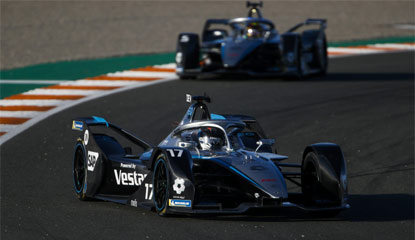Introduction
If you’re a car enthusiast or just someone who appreciates the thrill of a powerful and well-tuned engine, you’ve come to the right place. Engine tuning is an intricate and fascinating world that can transform an ordinary vehicle into a high-performance machine. In this blog post, we’ll take you through the art of engine tuning, exploring the techniques and strategies that can help you unlock your vehicle’s true potential.
The Basics of Engine Tuning
Before we dive into the depths of engine tuning, it’s essential to understand what it actually means. Engine tuning is the process of optimizing various aspects of an engine’s performance to achieve better power, efficiency, and overall driving experience. It involves fine-tuning the engine’s components, such as the air-fuel mixture, ignition timing, and more, to get the best possible performance.
Maximizing Horsepower
One of the primary goals of engine tuning is to maximize horsepower. More horsepower means your vehicle can accelerate faster, reach higher speeds, and handle demanding situations more effectively. Here are some key factors that contribute to increasing horsepower:
- Air Intake and Filters: Upgrading your air intake system with high-flow filters and larger intake pipes allows more air to enter the engine. This, in turn, results in better combustion and increased horsepower.
- Exhaust System: Replacing the stock exhaust system with a high-performance one can reduce exhaust backpressure and enhance engine breathing, contributing to increased horsepower.
- Fuel Injection: Modern engines rely on electronic fuel injection systems that can be reprogrammed to optimize fuel delivery. Tuning the fuel injection system can result in a noticeable boost in horsepower.
- Forced Induction: Superchargers and turbochargers can force more air into the engine, significantly increasing horsepower. They are a popular choice for those looking to maximize performance.
- Engine Control Unit (ECU) Tuning: Reprogramming the ECU, often referred to as “chipping” or “flashing,” is a common practice to tweak various engine parameters, including ignition timing, air-fuel ratios, and more. Proper ECU tuning can lead to substantial power gains.
Torque Enhancement
Horsepower is not the only consideration when it comes to engine tuning. Torque, the twisting force that makes your car feel powerful and responsive, is equally important. Tuning for torque can improve low-end and mid-range power, which is particularly useful for everyday driving and in situations that require quick acceleration.
- Camshaft Upgrades: Replacing the camshaft can alter the engine’s valve timing, optimizing it for increased torque. This is especially effective in naturally aspirated engines.
- Intake Manifold and Throttle Body: Upgrading the intake manifold and throttle body can enhance airflow and improve torque, especially in higher RPM ranges.
- Exhaust Headers: High-performance exhaust headers can reduce exhaust backpressure and improve torque throughout the RPM range.
Balancing Power and Fuel Efficiency
While it’s tempting to chase after maximum power, it’s essential to strike a balance between horsepower and fuel efficiency. Here are some strategies to achieve this balance:
- Tune for Efficiency: Modern engine tuning software allows for precise adjustments, making it possible to optimize the engine for both power and fuel efficiency. You can create different tuning profiles for everyday driving and performance.
- Cylinder Deactivation: Some vehicles come equipped with cylinder deactivation technology, which allows the engine to run on fewer cylinders when cruising, improving fuel efficiency.
- Gear Ratios: Changing the gear ratios in your transmission can affect both power and fuel efficiency. Consider customizing your transmission to suit your specific needs.
Professional vs. DIY Engine Tuning
Engine tuning is a complex process that requires knowledge, experience, and the right tools. While some basic modifications like upgrading the air intake or exhaust can be done by enthusiasts, more advanced tuning, such as ECU reprogramming, often requires professional expertise. Here’s a brief overview of your options:
Professional Tuning: Opting for professional tuning at a reputable performance shop can provide the best results. Experienced tuners have access to dyno testing and can fine-tune your vehicle for optimal performance and safety. This option is recommended for extensive modifications and complex tuning procedures.
DIY Tuning: For enthusiasts who are hands-on and have a good understanding of their vehicle, there are DIY tuning solutions available. These often involve purchasing a tuning kit and using software to modify the ECU. However, be cautious, as improper tuning can lead to engine damage or poor performance.
Legal and Safety Considerations
It’s important to note that engine tuning can have legal and safety implications, depending on your location and the extent of modifications. Here are some key considerations:
- Emissions Regulations: Many regions have strict emissions regulations that limit the modifications you can make to your vehicle. Make sure you understand and comply with local laws.
- Safety: Altering your vehicle’s performance can impact safety, especially if not done correctly. Ensure that any modifications you make don’t compromise your vehicle’s safety features.
- Warranty: Modifying your vehicle can void its warranty, so be prepared for potential financial implications.
Conclusion
The art of engine tuning is a thrilling endeavor that allows you to unleash the full potential of your vehicle. Whether you’re aiming to boost horsepower, enhance torque, or strike the right balance between power and fuel efficiency, engine tuning offers a world of possibilities.
Remember that engine tuning should be approached with care, ensuring that you adhere to legal regulations, safety standards, and warranty considerations. Whether you choose professional tuning or embark on a DIY adventure, the goal is the same: to create a high-performance masterpiece on wheels that delivers exhilarating driving experiences.
So, whether you’re a gearhead with a garage full of tools or just someone who wants to make their daily commute a bit more exciting, engine tuning can help you achieve your automotive dreams. It’s the art of pushing boundaries, maximizing performance, and feeling the power of the road beneath your wheels.





